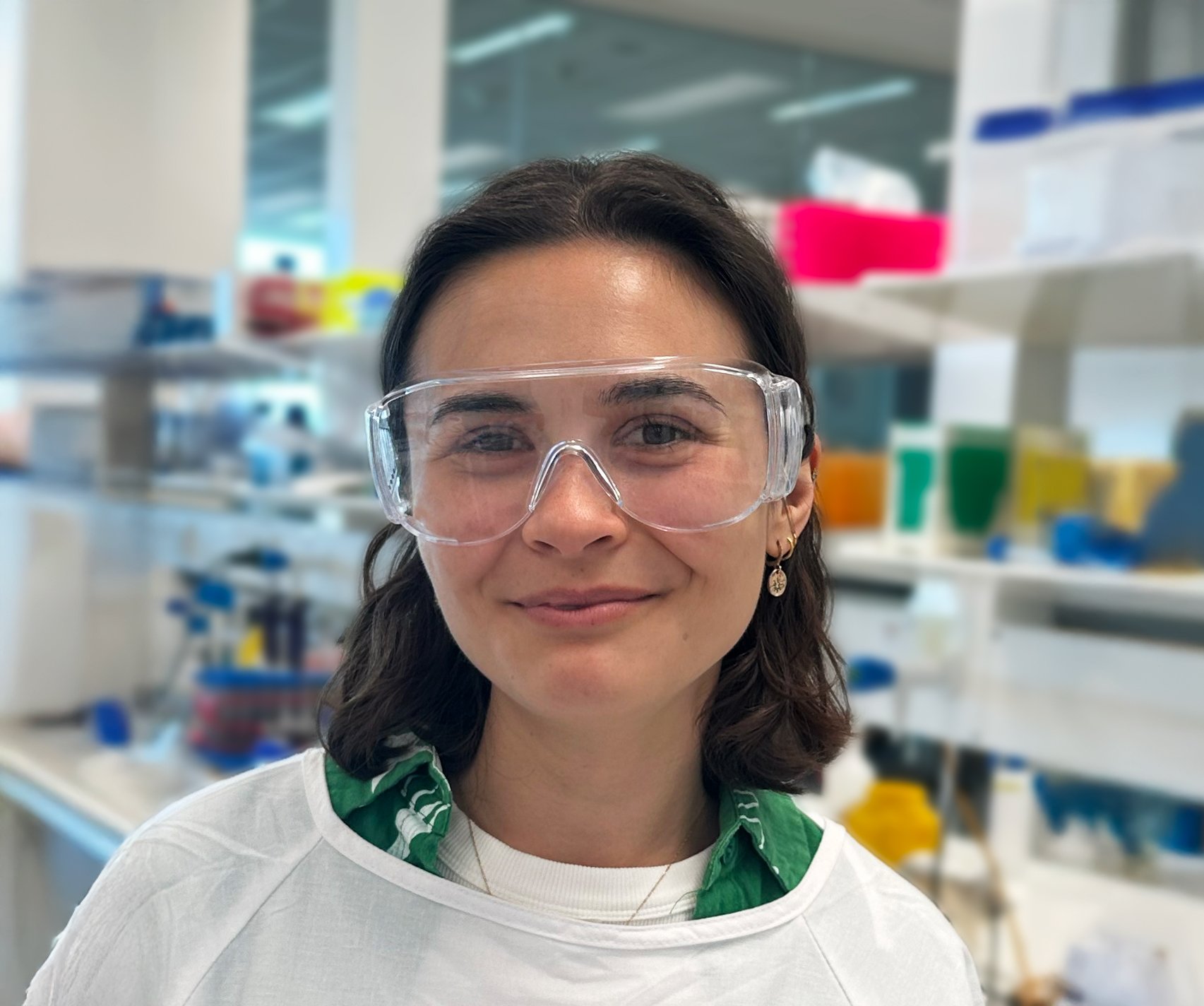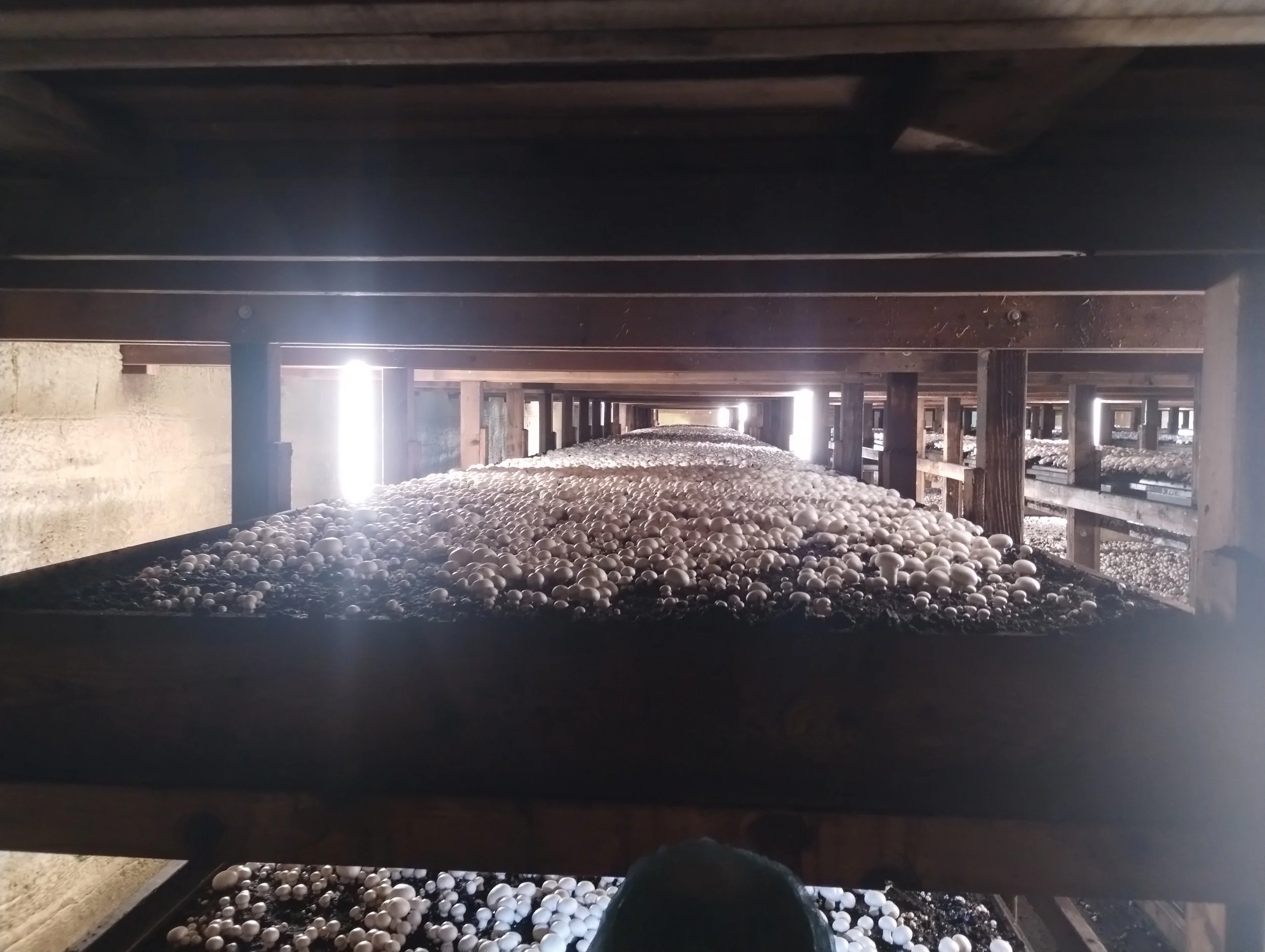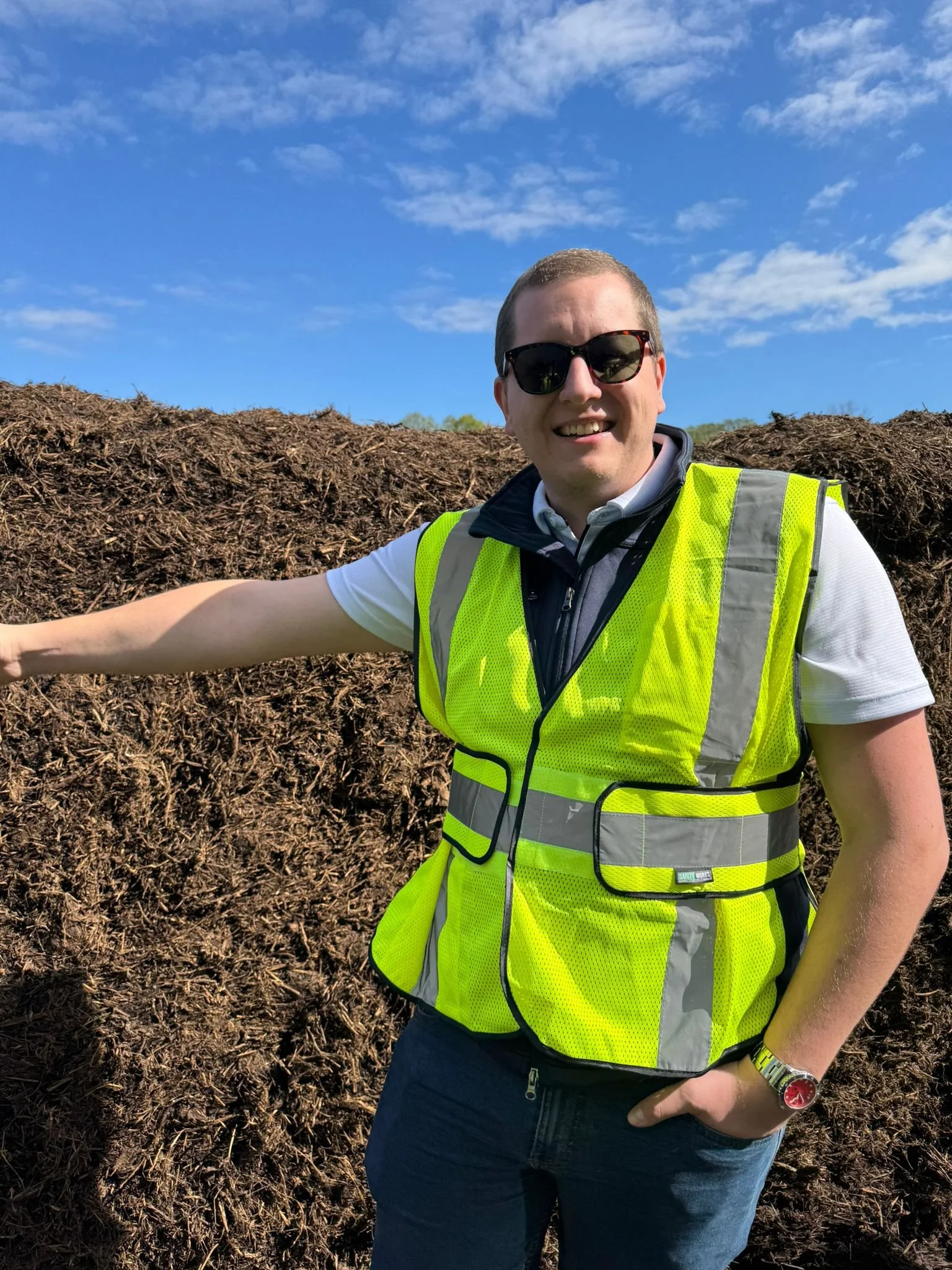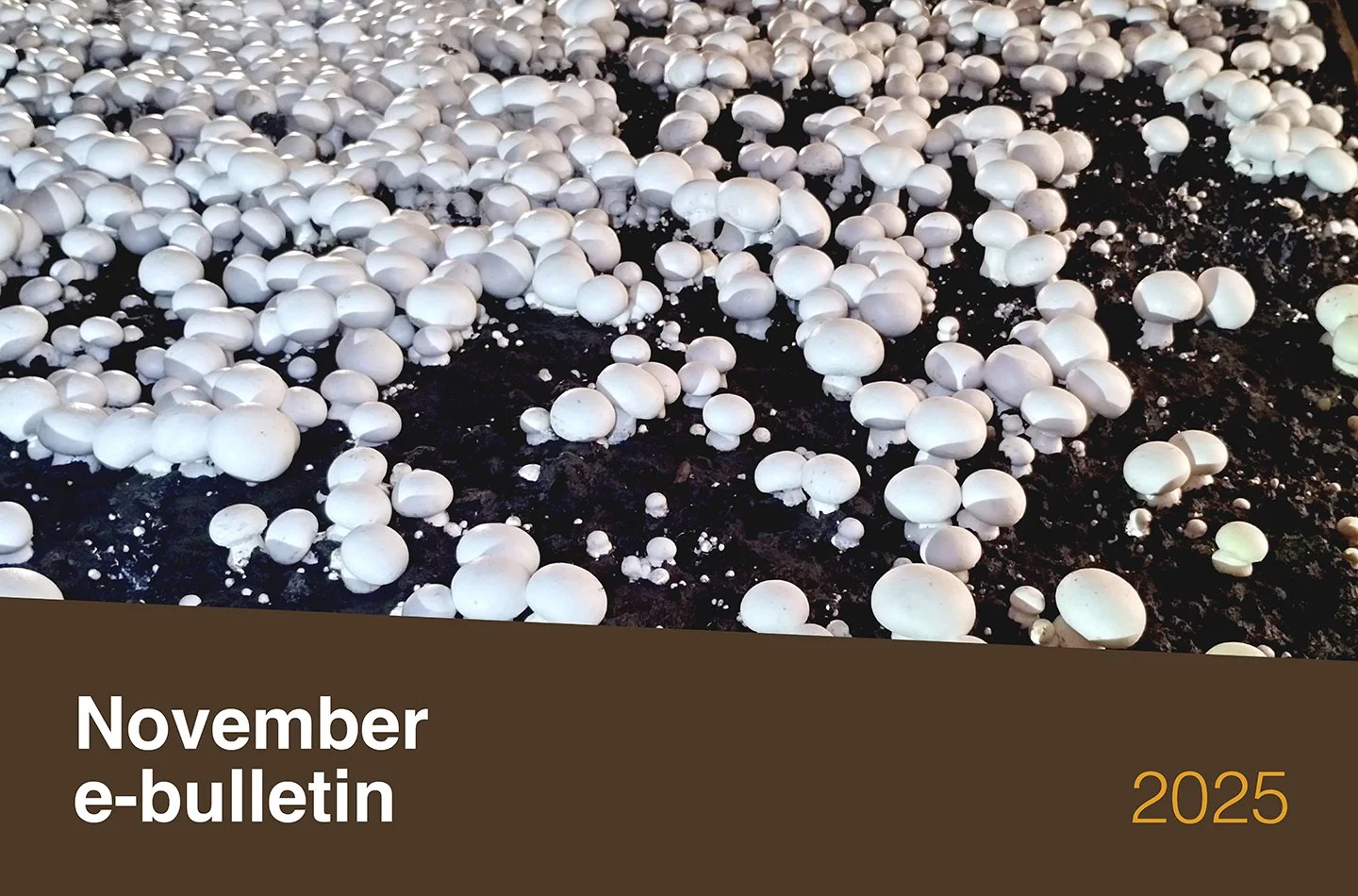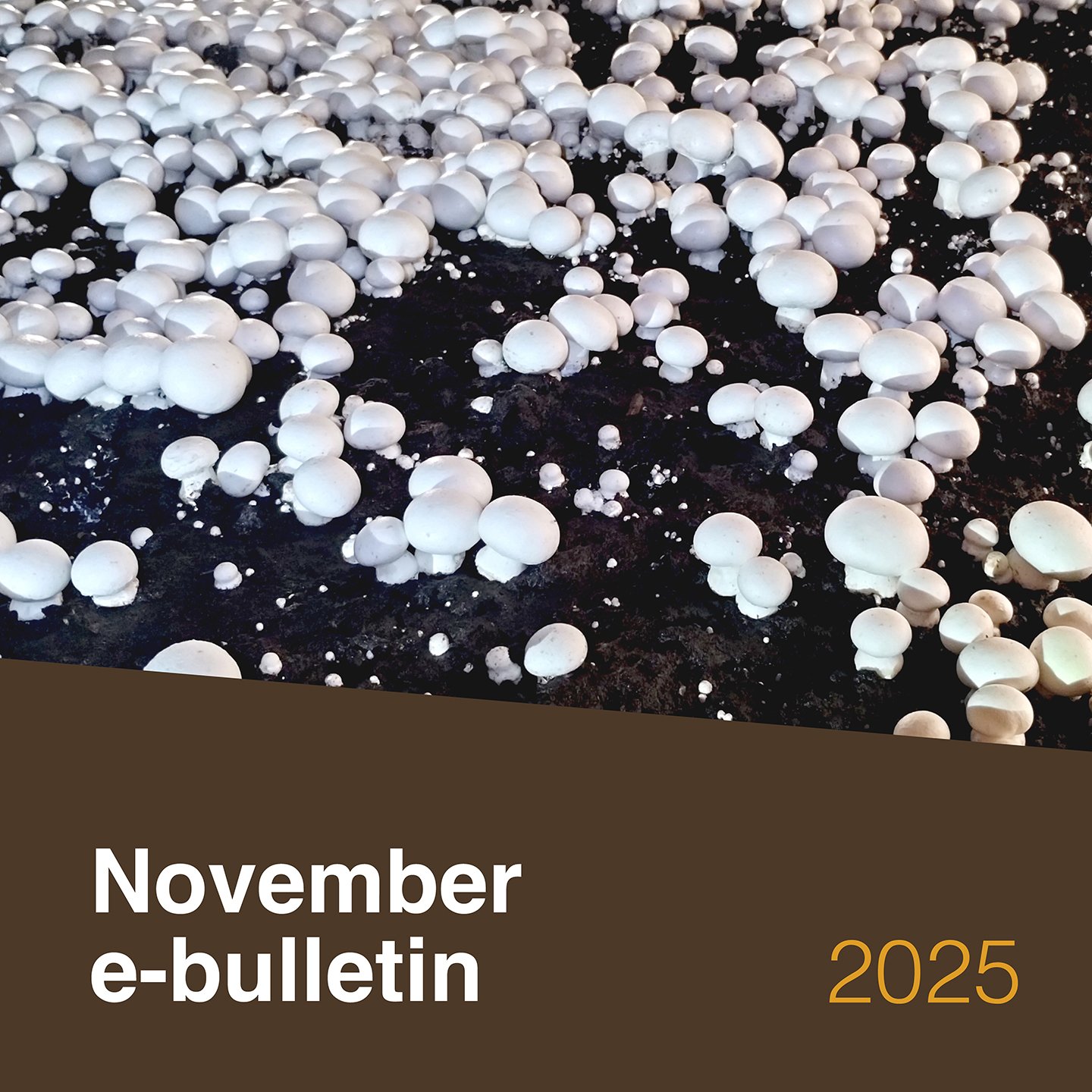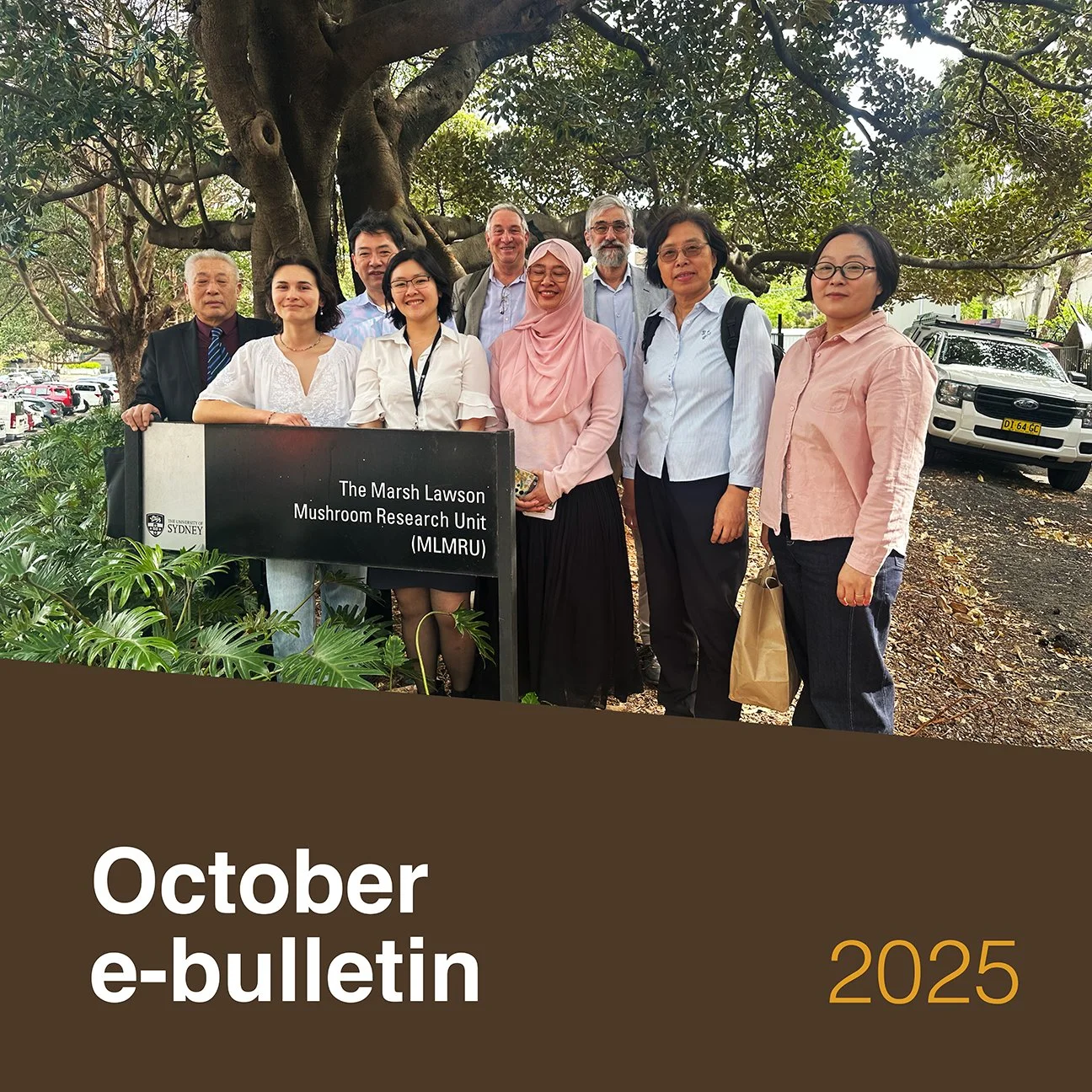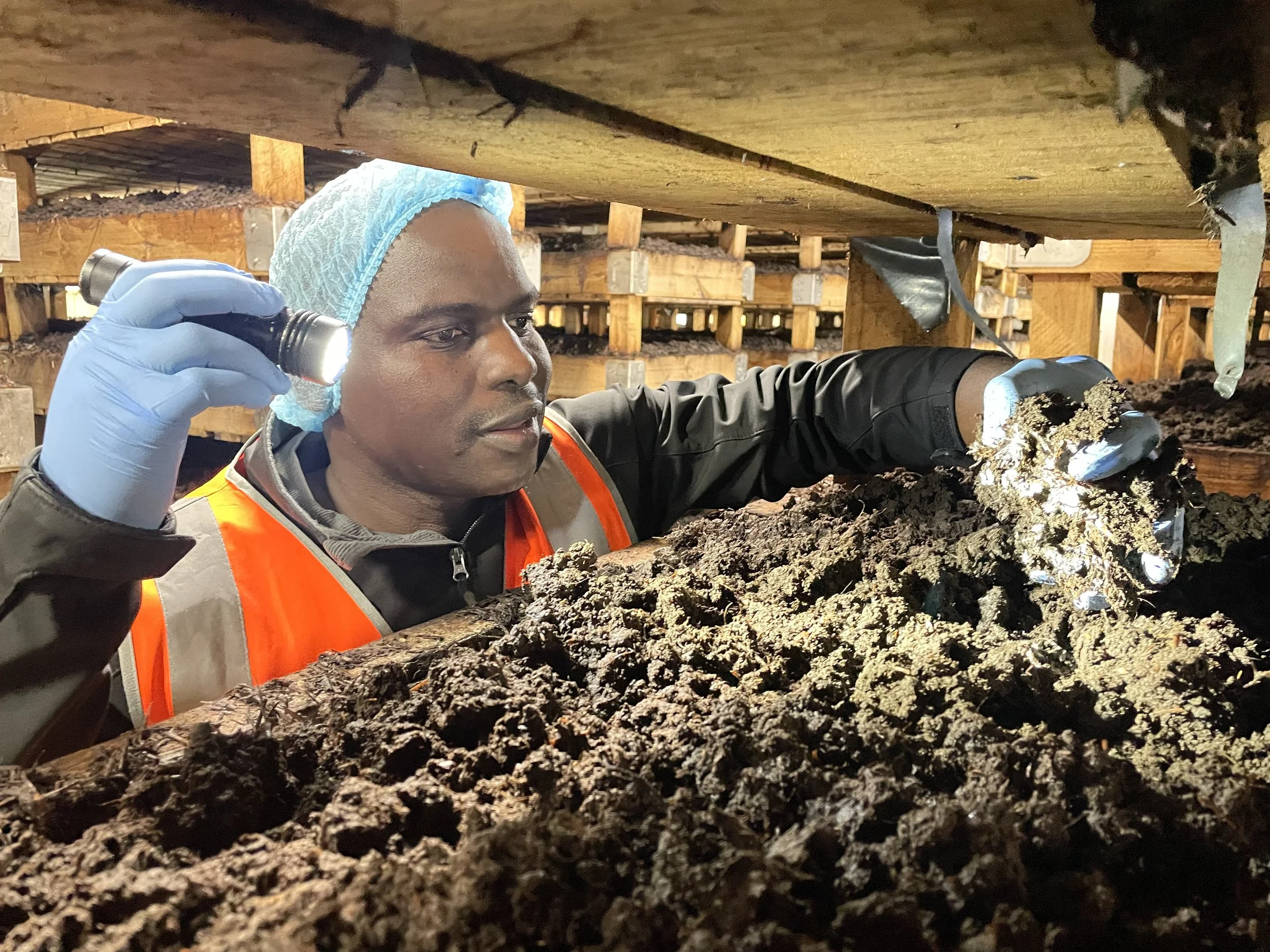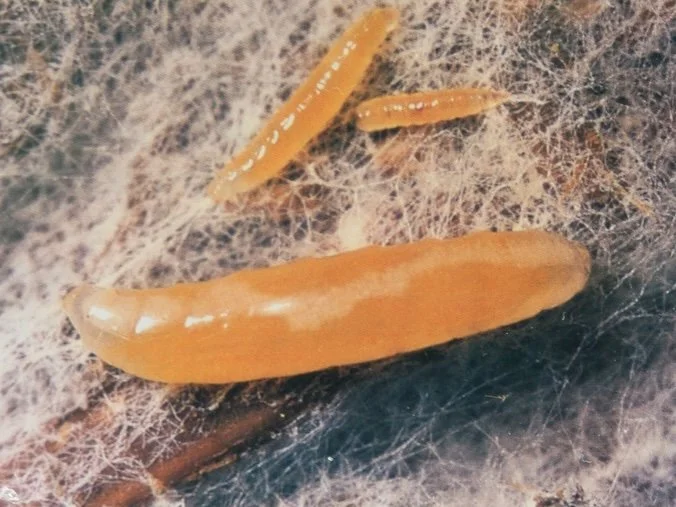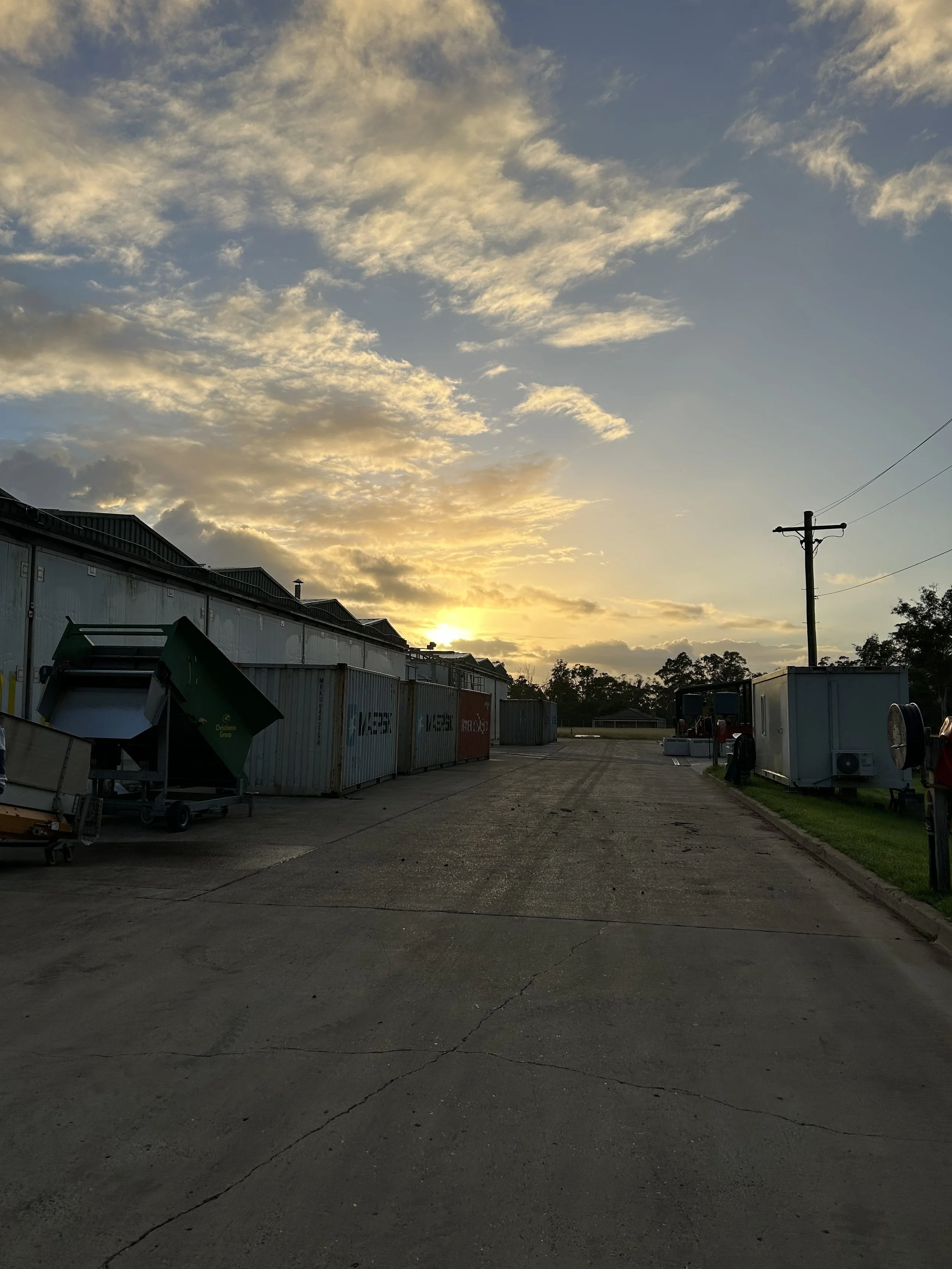Sarah Faulina goes beneath the surface: Compost, fatty acids, and microbial change
In this episode, Dr Jenny Ekman (AHR) sits down with University of Sydney PhD candidate Sarah Faulina, to dig into the topic of fatty acids and the role they can play in improving compost efficiency.
The conversation explores her early-stage research into compost supplements, specifically fatty-acid–rich amendments like canola and flaxseed, and how they influence the microbial communities within compost. While her research will eventually extend to crop yield, it begins beneath the surface – investigating the mechanisms at play and how fatty acids influence bacterial and fungal populations.
With compost amendments often being costly, Sarah’s work into understanding why fatty acids are effective opens the door to more affordable and scalable ways of achieving the same benefits. Thanks to modern testing technologies, researchers can now identify microbial communities in far greater detail, revisiting questions that were previously limited to yield alone.
Curious about how microscopic processes could shape the future of mushroom production? Take a listen to this episode.
Podcast hosted by Dr Jenny Ekman, AHR.
Sarah Faulina is a PhD candidate from The University of Sydney. Her research is focused on understanding how fatty acids influence mushroom growth through the microbial dynamics of compost. Her work examines why fatty acid supplements increased yields in previous research, with the long-term goal of assessing whether these approaches could be viable for large-scale production. Outside the lab, Sarah loves exploring forests and observing wild mushrooms - now with the added joy of understanding what helps them grow.
Rebecca Martin on bacteriophages: Unseen forces behind mushroom growth
Bacteriophages are the most abundant microscopic agents on Earth, yet much about them remains a mystery. In this episode, Dr Jenny Ekman (AHR) sits down with University of Sydney PhD candidate Rebecca Martin to discuss how these microscopic agents could be playing a surprising role in mushroom production.
The conversation covers what bacteriophages are, how they influence nutrient cycling in compost, and how understanding their behaviour could help Agaricus mycelium access nutrients more efficiently. Rebecca takes us inside her meticulous research, using advanced bioinformatics and DNA analysis to profile compost phages with remarkable precision.
Podcast hosted by Dr Jenny Ekman, AHR.
Rebecca Martin: Rebecca is in the final year of her PhD at the University of Sydney, supervised by Michael Kertesz and Gary Muscatello. She previously completed her Bachelor of Science with honours at the University of Sydney, majoring in both microbiology and biology. Her PhD project perfectly combines two of her major academic interests, ecology and weird microorganisms.
Inside Kennett Square, Pennsylvania
Kennett Square, Pennsylvania, is one of the world’s most established mushroom-growing regions, home to a diverse mix of farms and production systems.
Umberto Calvo
During a recent visit to the US for the Mushroom Growers Short Course, Umberto Calvo (AHR) toured several Kennett Square farms, seeing firsthand how producers are tackling challenges around scale, labour, mechanisation, pest pressure, and consistency. From highly automated sites to legacy and family-run operations, one shared issue stood out: managing flies and their impact on nearby communities.
MushroomLink Bulletin December
In this edition
New case study: Inside Kennett Square | Lessons from the world’s mushroom capital
Feature article: Researching viral diseases
Upcoming webinar: Save the date | Update from the team at ThinkStep ANZ
New podcast: Inside US mushroom research and farming | Umberto Calvo and Meghann Thai share first-hand insights from Pennsylvania trip
Five minutes with marketing: Australian Mushrooms socials | Bringing bold flavour to everyday meals
The latest from Hort Innovation: Plus One Serve launch
MushroomLink Bulletin November 2025
In this edition
Featured article: If something goes wrong | Protecting food safety in mushrooms
Webinar out now: Food safety | When things go wrong
New podcast: Umberto Calvo with James Ciarrocchi from Sher-Rockee Mushroom Farms, Pennsylvania
Mushroom sales: New sales data from Hort IQ
Five minutes with marketing: Shoppers say yes to mushrooms
Hort Innovation webinar: From Gen Z to boomers - What’s on Australia’s plate?
Hort Frontiers event: Australian-Grown Innovation Engage SA session
Inside US Mushroom Research & Farming: Umberto Calvo and Meghann Thai share first-hand insights from Pennsylvania Trip
In this episode, Meghann Thai and Umberto Calvo reflect on their recent trip to Pennsylvania, where they attended the Penn State University Mushroom Short Course, visited the Mushroom Research Centre, and toured ten local mushroom farms.
They share insights into how the US are approaching innovation, sustainability, and research, and how these practices compare to the Australian industry.
From composting techniques to casing materials, peat use, and local regulations, Meghann and Umberto unpack what they observed across a wide range of farming systems. They also explore how variations in infrastructure can influence production challenges, including the local fly issues.
Throughout the discussion, they discuss where Australia is leading the way, where there’s room to learn, and how international collaboration could pave the way for future breakthroughs.
Podcast hosted by Dr Jenny Ekman, AHR.
Umberto Calvo from AHR works across a variety of R&D projects in multiple horticultural industries in Australia, from avocados to vegetables. He is the manager of the Marsh Lawson Mushroom Research Unit, in Sydney. Umberto was in the US to attend the Mushroom Short Course at Penn State University and visit local farms to better understand their growing techniques, as well as their composting and casing materials.
Meghann Thai is a Postdoctoral Research Associate in Microbiology at The University of Sydney. Her current research focuses on the microbial dynamics in casing soil and aims to develop a sustainable alternative material for use in casing soil for button mushroom production. Meghann was invited by Professor Michael Wolfin to speak at the Penn State University Mushroom Short Course. Together with her colleague Umberto, she also visited several local farms to gain insight into US practices.
When things go wrong - Practical steps for mushroom growers
About this webinar
In this webinar, food safety and postharvest experts Melisa Cavallaro and Dr Jenny Ekman explore what happens when things go wrong in farm and how to respond effectively. This session will help you to strengthen your team’s readiness and refine your response systems.
Melisa steps through the corrective action framework, outlining what to do in the event of contamination. From containment and investigation to escalation and documentation, the framework provides a clear, structured approach to managing incidents while maintaining confidence and leadership.
Jenny draws on years of industry experience with pathogens and walks us through how they’re detected, what test results really mean, and why the presence of bacteria doesn’t always signal a food safety crisis.
Through practical scenarios - including microbial, chemical, and physical contamination events, this session will help you understand how to apply the framework in real-world situations.
This webinar is part of Food Safety Month, an initiative of the Hort Innovation mushroom levy-funded project 'Extension and adoption for food safety, quality and risk management (MU20000)', led by the Australian Mushroom Growers' Association.
About the presenters
Dr Jenny Ekman (AHR)
Dr Ekman is a postharvest physiologist and communicator who works to maximise produce freshness and value while minimising supply chain losses. She is passionate about applying science to improve commercial and consumer outcomes.
Melisa Cavallaro
Melisa Cavallaro is a certified HACCP Practitioner with over 15 years’ experience in food safety consulting, specialising in fresh produce. She is passionate about safe guarding the Australian agricultural industry and is dedicated to bridging the gap between GFSI certifications and small family-operated farms.
Umberto Calvo on local farming practices with James Ciarrocchi at Sher-Rockee Mushroom Farms, Pennsylvania
In this podcast we follow Umberto Calvo on his trip to the US where he visits Sher-Rockee Mushroom Farms in Pennsylvania to speak with mushroom grower James Ciarrocchi. Their conversation dives into the important intersection of science, sustainability, and innovation, drawing comparisons between US and Australian mushroom farming practices.
James shares positive insights into how the farm is tackling fly control through collaboration with Penn State University, under the guidance of Professor Michael Wolfin. Together, they are trialling the use of Vestergaard nets, an insecticide-infused, innovative material originally developed for malaria prevention in Africa. This breakthrough research takes a closer look at how netted growing rooms perform against traditional controlled environments, aiming to uncover a new way to improve pest control.
The discussion turns to casing materials and how geography, available resources, and tradition can shape mushroom cultivation. James also touches on how the farm are prioritising quality in order to compete with imported product, and the importance of bringing the mushroom story to life through community events and social media. Because it’s more than just farming, it’s about connecting people to the incredible versatility and benefits of mushrooms.
Podcast hosted by Umberto Calvo, AHR.
Umberto Calvo from AHR works across a variety of R&D projects in multiple horticultural industries in Australia, from avocados to vegetables. He is the manager of the Marsh Lawson Mushroom Research Unit, in Sydney. Umberto was in the US to attend the Mushroom Short Course at Penn State University and visit local farms to better understand their growing techniques, as well as their composting and casing materials.
MushroomLink Bulletin October 2025
In this edition
Feature Article: Mushrooms in China - research & consumption powerhouse
New Resource: Alternate casing substrate – providing review of research to date and an expert forum for future R&D investment (MU22009)
5 minutes with marketing – Celebrating World Mushroom Day with Courtney Roulston
Mushroom & human health survey: Have your say to help shape future research
Hort Innovation News: 2025 Annual Report Out Now
New Magazine Alert: MushroomLink Spring Edition Magazine
Celebrating World Mushroom Day with Courtney Roulston
For World Mushroom Day, Australian Mushrooms partnered with renowned culinary personality Courtney Roulston to create new recipes to showcase the flavour and versatility of Australian Mushrooms. Earned media activity included a targeted approach, pitching to top-tier media outlets with the captivating angle "travel around the world with mushrooms". This angle was a fresh way to communicate how easy it is to use mushrooms across various cuisines, providing everyday dinner inspiration. Highlight was a segment with Larry Emdur and Kylie Gillies on channel 7's The Morning Show, celebrating the taste and versatility of Australian mushrooms.
Courtney's three recipes - Spiced Mushroom Taco, Mushroom Katsu Sandwich and Spicy Honey-Soy Mushroom Noodles - are on the Australian Mushrooms website and have been shared across her social channels as well as Australian Mushrooms' owned channels.
All coverage so far has achieved over 23 million opportunities to see.
Highlights include:
The Morning Show (see video below), Channel 7 (1.6 million weekly reach) - 2.5-minute segment World Mushroom Day spotlighting how viewers can easily use Australian Mushrooms in Courtney’s recipes to create delicious dishes at home (see video below).
7News.com.au (8.3 Million monthly reach) - Ran a piece for World Mushroom Day dedicated to Courney’s Australian Mushroom recipes, inspiring Aussies to prepare, eat and enjoy Australian Mushrooms as their hero ingredient and take advantage of their many benefits.
Body + Soul (1,270,000 Reach) - News.com.au wellness platform ran an article featuring the Mushrooms Taco recipe, using the stunning photography Courtney created alongside a credit to Australian Mushrooms with a website link.
The Nightly (2,800,000 Reach) - The news website ran a lifestyle piece including the Taco and Katsu Sando recipes.
The Morning Show
MushroomLink Magazine Issue 14
We hope you enjoy this issue, with its usual mix of R&D news, the latest in technology from around the world, and pest and disease updates.
You can subscribe to an e-copy of MushroomLink magazine here or view previous issues here
Click here to download the magazine
Articles
Levy funded project updates
Marketing
Growing & Tech
Pest & diseases
The 2025 Mushroom scholarship fund recipients
The Hort Innovation Mushroom Fund Scholarship Program, delivered by the AMGA, is opening doors for the development of knowledge in mushroom production. Backed by the industry’s R&D levy, this international education initiative gives Australian Agaricus mushroom growers and compost producers the chance to dive deeper into critical topics, learn from global expertise, and bring those insights home to strengthen the entire industry.
In 2025, the scholarships will provide six recipients with partial funding support to participate in the Mushroom Compost Masterclass. Facilitated by Mark den Ouden from the Mushroom Office, the masterclass is comprised of self-paced online learning modules followed by a five day intensive study tour in Europe.
Manipulating Agaricus bisporus developmental patterns by passaging microbial communities in complex substrates
The cultivation of Agaricus bisporus depends on a delicate balance of microbial interactions in the compost – which provides nutrients, and the casing layer – which supports fruiting.
While some bacteria are known to influence mushroom growth, researchers have had little opportunity to study how entire microbial communities shape developmental patterns.
This study explored whether deliberately altering these microbial communities could shift the way mushrooms develop, with the longer-term goal of improving yield management and sustainability.
Researching viral diseases
In 2020 Australian mushrooms with patch disease and brown cap were observed, however the virus complex detected differed to the complex associated with MVX.
A Hort Innovation levy funded project (MU22003) led by Agriculture Victoria and commenced in May 2024, aims to better understand the variation in viral signatures between MVX and the Australian patch and brown cap disease.
Growing beyond peat: the PEATLESS consortium
A new European consortium has launched the PEATLESS project, aimed at accelerating the transition to sustainable growing media with significantly reduced peat content. With the tagline #lesspeat, the initiative will develop, test and promote low-peat blends tailored for three key horticultural sectors: mushrooms, seedlings, and ornamentals.
Coordinated by the Technological Research Centre for Mushrooms of La Rioja (CTICH), the project brings together 12 partners from four countries — including research institutes, universities, industry players and policy makers.
Backed by €4.2 million from Horizon Europe and the Swiss State Secretariat for Education, Research and Innovation (SERI), the consortium will run from 2025– 2028.
Mushroom marketing update Spring 2025
The Australian mushroom industry is operating in a changing marketplace, with shoppers tightening household budgets. However, consumer research shows that mushrooms continue to be recognised for their taste, versatility, and health benefits. These strengths that can be amplified with the right investment.
Through the mushroom marketing levy, the industry has committed to a bold, multi-channel marketing program for 2025–26. The aim is simple: keep mushrooms top of mind for Australians and ensure consumers see mushrooms as a ‘must have’ on their weekly shopping list.
For growers, understanding this plan is vital. Not only does it demonstrate how levy funds are being invested, but it also highlights when and where promotional activity will peak, all valuable information for aligning supply, planning promotions, and anticipating consumer demand.
Mushrooms in China
Insights from Shanghai scientists
One of the key objectives of the Australian mushroom industry is to increase annual consumption from approximately 2.8kg to 4kg per person. Our current consumption is similar to that in the USA, Ireland and the UK, but higher than that in Europe, which is only 1.3kg per person annually.
However, these consumption rates are tiny compared to China. In 2023 China produced around 44 million tonnes of mushrooms. Given a population of 1.4 billion, some estimates put annual consumption at up to 29kg per person.
MLMRU update Spring 2025
A new project has commenced to help secure the future of the MLMRU over the next three years.
The project, Marsh Lawson: Elevating Mushroom Excellence Through Continual Research (MU24005) is a three-year levy-funded project that builds on the previous project and will continue to provide management and research services at the MLMRU.
This investment is designed to help the mushroom industry drive innovation, facilitate sustainable business practices, adopt best practice beyond compliance, adapt to climate change, and foster new expertise through dedicated R&D pathways.
What do do if you have orange cecids
Three species of mushroom cecid have been known to occur in Australia: The orange cecid Mycophila barnesi, the white cecid Heteropeza pygmea, and the yellow cecid Henria psalliotae (Nair and Clift 1993). In the last two decades, the reported incidence of cecids has been very occasional and in each instance only orange cecids have been observed. The major concern with a cecid outbreak is that it makes the mushrooms unsaleable.
Invaders versus emerges
Understanding their different roles in phorid infestation for effective management
Mushroom phorid flies (Megaselia halterata) are a significant pest of button mushroom cultivation systems. The terms invader and emerger were first applied by Michael Wolfin and his associates at Penn State University to describe two critical stages in the mushroom phorid fly life cycle. Understanding these different stages is important for effective integrated pest and disease management (IPDM) and can be used to guide phorid control strategies.


